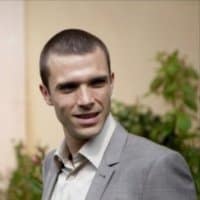Since September 2014, Fert is in partnership with the Isara Lyon, the agricultural school of Lyon. In this context, it occurs throughout the year with students.A year after its launch, Jacques Godet, research professor, and Emilien Pax, the International Relations Department of Isara, return to this partnership. Joint interview.
In 2014, Isara-Lyon has formalized a partnership with the agri-Fert agency. What motivated this rapprochement?
EP:2 main reasons are behind this reconciliation: the first observation is that the concept of development – in the framework of international solidarity – particularly attracts engineering students Isara Lyon. Paradoxically, they rarely have a clear idea of what this means, how this translates in terms of missions, activities and crafts. It is therefore first to allow them to go beyond the simple aim of development by discovering the means of action. The second reason is related to the first: the Isara Lyon offers in recent years to its engineering students to follow international development oriented courses (Datam – Farming technology and Agri-Food Development in the World) in the last two years of their course. It is important for us constantly enrich the content of this course; and industry professionals involved as Fert is a great way to achieve it.
JG : Other training courses also direct students to local development and regional planning, while providing a fresh perspective North / South. They cater to both students wishing to specialize as others simply wishing to supplement their curriculum. Pedagogically and didactically, it’s a challenge, because you have speakers that are foremost practitioners capable of adapting to our public and to their different degrees of interest. It is also necessary that these stakeholders can reflect the diversity of situations while showing transversal methods; eg how the development engineering is an identifiable professional culture, and this that we work in France or in Africa, in the Rhône or Peru, rural or “rurban” etc. Beyond that, and this is not the slightest difficulty, it is also introducing a critical eye that is not destabilizing. Fert’s team gets there pretty well!
What is (are) the intervention(s) of Fert as part of the training given to Isara-Lyon?
EP: Fert’s intervention was reflected as a gradual support for our engineering students beyond the simple framework of training and Datam course. Thus, the introduction to the development proposed by Fert our 3rd year students allows them to become familiar with the concept and guide them in their career choices. For those of them who decide to deepen the subject, we then mobilize the skills of Fert to propose specific educational content (courses on project cycle 5th year) and put in concrete situations directly related to the activities of agri-agency (group work, internships …). More generally, the sponsorship of the Datam by Fert option well reflects the common will to accompany the duration of the engineering students on the one hand Isara Lyon, and project the other Fert.
JG :the interest lies in the fact that the same stakeholders can as well make progress – that is to say frame while allowing interactivity – simply accompany students in their field missions, or attend meetings intervene in roundtables or testify at forums. They can also take on the role of the study sponsor, be tutor, or a vision “from the inside” speaking in a professional situation in different aspects, take a certain critical distance, being able to objectification , etc. This account in the assessment that we make this partnership with Fert.
What is the added value of an agency such as agri-Fert training proposals in a school of agricultural engineers like yours?
EP: contributions are varied: in general, the look that carries a agri-agency like Fert on existing agricultural systems is valuable and complementary to those offered by other industry players. For Isara Lyon, it is essential to ensure a comprehensive insight into the different perspectives promoted by these actors. A partnership like this also helps support the legitimacy of the Isara on themes dear to him as international solidarity and support for food chains in developing countries, but also the “professionalization” of our future engineers through a permanent exhibition of economic actors.
JG : There is an interest in fact in the “professionalization”, which, incidentally, shows that besides economic aspects, development (and trades) integrate social, ethical or cultural. As interest in the fact to expand the field of view of the students, since the action of Fert is intended as a form of joint cooperation (between farmers or between OPA) interesting alongside official development assistance, decentralized cooperation and other dynamic and associative networks, and any order. This is another way to “do development” but also for the students another way to see a professional sector, its values and its operation, its strategies and its various declinations. The partnership with Fert also allow the Isara to be connected to other networks, such as the agri-agencies and NGOs.




